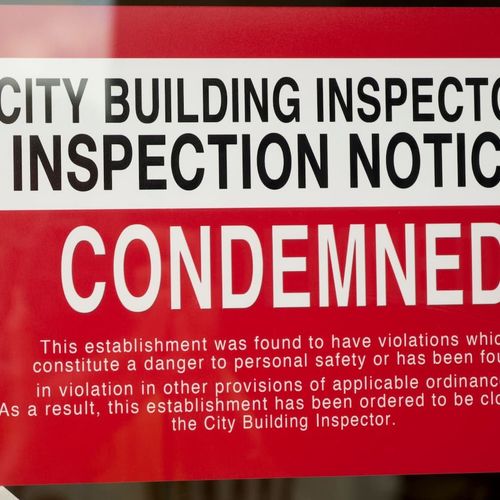Can You Sell a Probate House Before Getting Title?
Selling a home through probate can feel overwhelming, especially if you're asking: Can I sell a probate house before getting the title? The short answer is no, you typically need legal ownership to proceed. But there's more to understand. The probate process, executor responsibilities, and the grant of probate all play key roles in determining when and how you can sell.
This guide will walk you through everything you need to know so you can move forward with confidence and avoid legal pitfalls.
Key Takeaways
- You usually cannot sell a probate house before getting the title.
- You will need a grant of probate to confirm your authority over the estate.
- Selling early can cause legal issues and delay the transaction.
- Marketing is possible before the title transfer, but not the final sale.
- Working with real estate and legal experts can ease the process.
Understanding the Probate Process and Title Transfer

If you're handling a loved one’s estate, it’s essential to know how probate and title transfer work together. Probate is the legal process of settling a deceased person’s affairs. It ensures debts are paid and property is distributed correctly.
Hot Topic You Might Love: If you're enjoying this, don’t miss our latest post — Court Approval for Probate Sale. It’s getting attention and might surprise you.
What Happens to the Title in Probate?
You can’t legally sell a probate house before getting the title. Until the court officially transfers ownership, you’re not allowed to close a sale. However, you can start preparing by gathering paperwork, assessing the home’s value, and consulting with professionals.
Being proactive now helps make the sale smoother once you receive the title.
The Executor’s Role in a Probate Property Sale
If you’re the executor, you manage the estate and carry out the deceased’s wishes. But your power has limits until probate is granted.
What does an executor do? This quick video explains it well.
Executor Authority vs. Legal Limits

| Executor Tasks | Legal Limits | Responsibilities |
|---|---|---|
| Manage estate assets | Must follow state probate laws | Maintain property value |
| Handle property sale | Court approval is often needed | Communicate with heirs |
| Settle debts and taxes | Must report to beneficiaries | Distribute remaining assets |
To sell a probate house before getting the title, you’d have to overstep legal boundaries, which could result in serious consequences.
Legal Requirements to Sell a Probate House
Understanding legal steps helps avoid delays and mistakes.
Probate Timeline and Process
The probate timeline varies, but one thing stays the same: you must get the grant of probate to manage and sell the property officially. You’ll also need a court-approved valuation to set a fair price.
Also, you should be able to familiarize yourself with any specific regulations your state has on probate sales. If you're unsure where to begin, this guide to probate sales in California can help clarify the process and outline the next steps.
Required Documents
To legally sell, gather these:
- Death certificate – verifies the owner has passed.
- Will outlines how the property should be handled.
- Letters of Administration – if there’s no will.
- Court approval – often required for selling.

These documents ensure buyers trust the sale and reduce your legal risks.
Having these documents in hand not only eases the selling process but ensures you're legally protected as you move forward. For additional clarity, the American Bar Association offers an excellent breakdown of probate requirements across different states.
Why the Grant of Probate Matters
A grant of probate is your legal permission to sell. It confirms your authority and protects you from future claims.
Without it, trying to sell a probate house before getting the title can lead to:
- Sale delays
- Legal disputes
- Lost trust from buyers
Obtaining the grant ensures a smoother and more legal sales process.
Can You Market a Probate House Before Title Transfer?

Yes, you can begin marketing the property, but you can’t finalize a sale until the title is transferred.
Tips for Early Marketing
- Know your limits – You can list the property, but you must disclose the title status.
- Prepare key documents – Buyers may want details upfront.
- Set clear expectations – Be honest about possible wait times.
- Hire experienced professionals – They can guide you through probate marketing.
Risks of Selling Before Title Transfer
Trying to sell a probate house before obtaining the title may seem like a shortcut, but it can backfire.
What Could Go Wrong?
- Legal issues – You don’t have the right to sell yet.
- Buyer hesitation – Unclear title may scare off offers.
- Financial risk – A deal could fall apart late in the process.
- Repairs overlooked – Rushing may reduce your home’s value.
Avoid these risks by waiting until you legally hold the title.
How to Prepare the Property for Sale

While you wait for the title transfer, take steps to make the home market-ready:
- Declutter – Remove personal items to attract more buyers.
- Clean and repair – Tidy up and fix minor problems.
- Stage the home – Simple changes, such as fresh pillows or updated lighting, go a long way.
- Set a price – Use local market data and expert advice.
If you're preparing to sell a home in a specific area, check out what’s happening locally — for example, we actively buy houses in San Rafael, CA, and can help make the probate sale smoother.
Working With Real Estate and Legal Experts
Seeking help is one of the most effective ways to reduce stress and avoid mistakes.
What Real Estate Agents Do
- Evaluate market value
- Handle probate listings
- Negotiate with buyers
- Could you connect you with legal pros?
Legal Professional Support
- Help with the grant of probate.
- Review contracts and documents.
- Ensure all laws are followed.
Communicating With Other Executors or Heirs
If others are involved, it's necessary to communicate clearly.
- Schedule regular check-ins
- Share key documents
- Clarify decisions early
- Keep everything transparent
Open communication helps avoid conflict and keeps everyone on track. Understanding these elements will enable you to navigate the process more effectively.
Managing Offers and Negotiations

When offers come in, don’t rush. Weigh your options:
| Offer | Pros | Cons |
|---|---|---|
| Cash buyer | Fast close | Might offer a lower price |
| High offer | More profit | It may take longer to close |
| Contingent | Room for flexibility | Could fall through |
Work with your agent to choose the best path forward.
What Happens After the Sale?
Once you’ve closed the deal:
- Get court approval (if required)
- Distribute funds to beneficiaries.
- File final estate documents.
- Close the estate officially.
The process doesn’t end with the sale—it ends when all estate matters are settled.
Conclusion
In most cases, you should not sell a probate house before getting the title. Doing so risks legal and financial issues. Instead, work through the proper steps:
- Could you wait for your grant of probate?
- Prepare the home for sale.
- Consult trusted professionals
- Could you maintain open communication with the heirs and the court?
By following the proper process, you’ll protect yourself and honor your loved one’s wishes.





